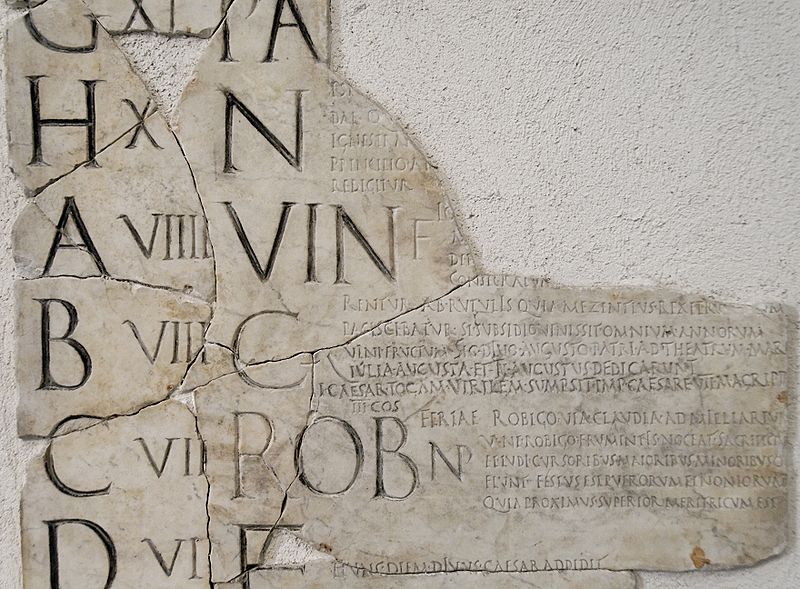I know this was posted as a joke, but
It’s quite something isn’t it?
Wonder if the other physicists on this board will wander over here and think it worth the time to even comment… ![]()
[re Neuroquantology]
True enough, but the statement is still correct by and large [re USA! USA! USA! and Apollo].
If there is a pragmatic advantage to one choice over another, there can be a point where the advantaged system can gain favor as familiarity with it increases.
To bring it back to the matter of calendar choice, I believe the younger generation of Japanese culture is beginning to prefer the Gregorian calendar over the traditional nengo system, partly because of greater exposure (since the Internet and current science and engineering discourse use it) and partly because of the practical advantage of a continuous timeline with the innate concept of a negative offset from epoch.
I have no idea what that thing is, but it’s not a scientific paper.
Wikipedia weighs in:
NeuroQuantology is a monthly peer-reviewed interdisciplinary scientific journal meant to cover the intersection of neuroscience and quantum mechanics. It was established in April 2003 and its subject matter almost immediately dismissed in The Lancet Neurology as “wild invention” and “claptrap”.[1] While the journal had a 2017 impact factor of 0.453, ranking it 253rd out of 261 journals in the category “Neuroscience” as reported in the 2018 edition of Journal Citation Reports,[2] Clarivate Analytics delisted the journal in its 2019 edition.[3] The journal describes itself as focusing primarily on original reports of experimental and theoretical research. It also publishes literature reviews, methodological articles, empirical findings, book reviews, news, comments, letters to the editor, and abstracts. …
According to Sadri Hassani, neither the editorial board nor the advisory board contain scientists working in the fields of quantum physics or neurology.[5]
End of hijack -
If I were starting the metric system from scratch, I would make one significant change: I would use base-twelve math instead of base-ten. This would require two extra digits for ten and eleven, but would give you easy division into thirds and quarters and sixths. And it’s not like Europeans weren’t already used to dozens and grosses.
Easier said than done. It would require not just an overhaul of the metric system, but a more fundamental replacement of base-10 as the preferred number system for expressing numbers. That preference for 10 is way older than the metric system, and it is even older than the Arabic numbers that we use - the Romans, for instance, did not have Arabic numbers, but they did use a base-10 system: decem, viginti, triginta etc. up to centum, then mille.
Here’s a dumb question, and I hope not too much of a hijack: how did Romans (and others) designate the days of the week? And when was the switch made to Thor’s Day, Wodin’s Day, etc."
The Latin names for Sunday to Saturday are dies Solis, dies Lunae, dies Martis, dies Mercurii, dies Iovis, dies Veneris, and dies Saturni, and you can read more about the naming of days of the week in Latin Names for Days of the Week.
What about the nundinal week? Which seems more classical. Did it have anything to do with those planetary names? Did anyone in the Republic even use a 7-day week?
A picture on Wikipedia just shows the 8 days of the week marked A through H:

Norse gods might have to do with associations like Thor ↔ Jupiter, but that does not mean the Romans themselves used them instead of the classical planets listed by @Wendell_Wagner
And quite intriguingly, there is a one-to-one correspondence between the Nordic gods that are used in the Germanic languages (including English) to designate the days of the week, and their Roman counterparts used in Latin and languages derived from it. Thursday is named after Thor, who was equated with Roman Jupiter, and hence Thor’s day corresponds to Jovis dies, day of Jupiter (hence French jeudi, Spanish jueves etc.). Friday is Freyja’s day, who was equated with Venus (Veneris dies, vendredi, viernes). Some Pagan relicts are present in Sunday, which reflects Pagan adoration of the Sun and which Christianity renamed, in Latin, the day of the Lord (dies dominicus, dimanche, domingo).
The 7-day Roman switch was quite late. 321 CE by Constantine.
On unitary vs non-unitary, might as well throw in why December isn’t the 10th month.
According to this, December (from Latin decem, “ten”) or mensis December was originally the tenth month of the Roman calendar, following November (novem, “nine”) and preceding Ianuarius. It had 29 days. When the calendar was reformed to create a 12-month year starting in Ianuarius, December became the twelfth month, but retained its name, as did the other numbered months from Quintilis (July) to December. Its length was increased to 31 days under the Julian calendar reform.
But surely many Romans were familiar with the seven-day week long before that. Because of its Jewish origin, Christianity has always followed that cycle, and it was a fast-growing community in Rome even before Constantine.
Well, since you bring that up, and in light of my recent post on hiccups in regularity, the Jewish yearly calendar is consistent in its inconsistency. The Jewish calendar is lunar, nominally, but unlike true lunar ones, eg Muslim, every so often an extra month is inserted, so that the holidays, all of which are associated with the Land of Israel and/or have explicit agricultural rituals, match up more or less with the seasons there. Eg, Ramadan will show up on the Christian solar calendar all over the year, but the Jewish festivals and holy days, high or otherwise, keep somewhat steady relatively speaking.
A little searching reveals some genuine Pompeiian graffiti like


but did it have to do with Christianity?
It may well be that Romans adopted the seven-day week independently of Christianity. My point is that Christianity, at the very least and latest, must have brought it to Rome.